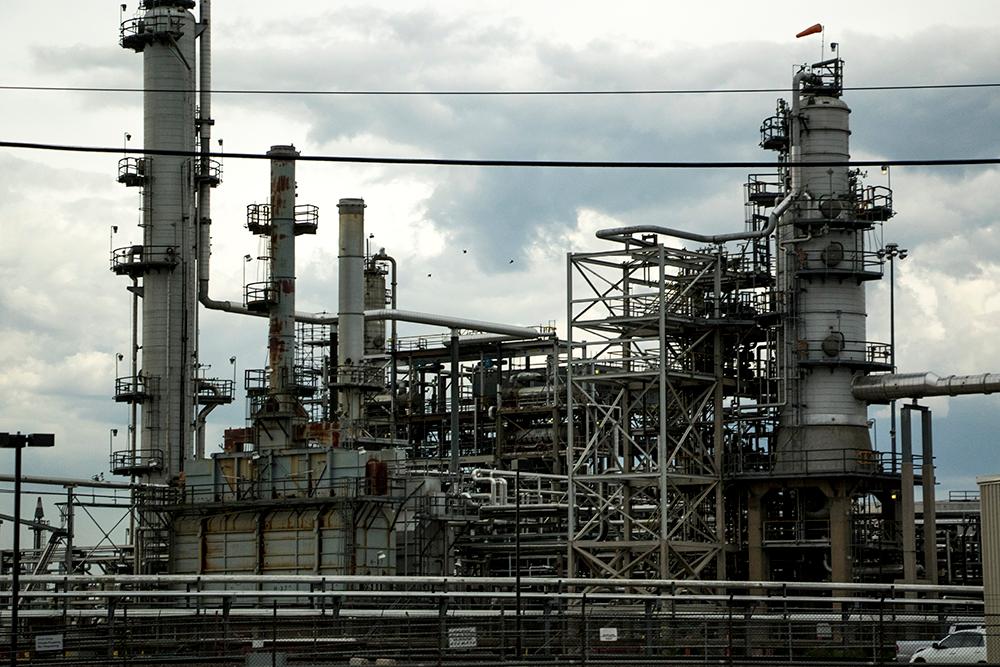
Less than two weeks after Colorado health officials reached a settlement with Suncor Energy in early March, yellow clouds of smoke were seen billowing from the refinery. A “clay-like” material was spread, prompting the shutdown of Brighton Boulevard between Denver and Commerce City as they dealt with the malfunctioning equipment.
A public statement said the company’s, “refinery experienced an equipment malfunction in its Plant 2 fluidized catalytic cracker unit, resulting in an abnormal release of emissions that was visible in the community.” This was the same unit that experienced issues last December when the Canadian company’s Commerce City refinery had a similar “opacity event” prompting school lockdowns and the settlement.
Colorado State Sen. Dominick Moreno, who represents the area, said he received a lot of questions from his constituents.
“No one quite knows what opacity event means,” he said. “There hasn't really been any explanation of what that means to the community.”
He and community members receive notices from Sunco but they’re in very technical terms and don’t explain really what happened. Moreno wonders if the $9 million settlement Suncor agreed to is enough or if it’s a slap on the wrist.
“I mean, I think we have to explore whether or not, you know, those kinds of slaps on the wrist are really enough to change behavior and to make sure that the safety precautions are in place and that the information is delivered to the community.”
That’s why he introduced a new measure, HB 20-1265, which would create a new program to regulate emissions and establish a community alert system when incidents like this occur.
Suncor maintains they’re monitoring the situation. CPR reached out to them for comment but they declined an interview. A spokesperson directed us to their Facebook page which repeated their public statement.
Jeremy Nichols, the climate and energy director at Wild Earth Guardians, said Suncor isn’t being transparent. He said the term “opacity event” basically means an unacceptable amount of pollution was released into the air.
“And basically, the more opacity that's coming out, the worse it is. The worse it is for air quality. The worse it is in terms of risks to public health. That's the bottom line,” Nichols explained.
He noted the cause can be hard to pinpoint, but the bottom line is that it’s unacceptable.
“What they're not saying is that an inappropriate amount of pollution was released and that that poses risks to public health.”
Colorado Department of Public Health’s John Putnam, who serves as the director of environmental programs, said that they did receive a notice from Suncor at 6:05 p.m. on Tuesday. He said an investigation of what happened is underway and that the department has three temporary monitors in the area and is confident there is little risk to the public.
“All of those checked out well below the ambient air quality standards that are set by the federal government and that we adopt here at the state level,” Putnam said.
After the incident in December, Putnam explained that they had taken samples of the fallen dust and sent it off to labs to be chemically analyzed. During that process, he said he did not find any unusual metals or volatile organic compounds that would raise any health issues.
“It’s not perfect,” he said. He said CDPHE wants the legislature to give them more tools to give them a quicker and more accurate response of what exactly is in the dust.
But with the legislature on pause due to the coronavirus pandemic, the future of those tools is uncertain.
Putnam said CDPHE is “very concerned about the incident that occurred right in the wake of the settlement that was announced a couple of weeks ago. We're going to do everything in our power to investigate and to hold them accountable for violations of excess emissions.”
The latest event is very worrisome for Wild Earth Guardians Nichols and has left him and others wondering whether an initial violation and fine is enough. Instead, he thinks it’s time to shut the refinery down — at least until they can determine what happened and correct some of the problems.
“When companies have to face the music like that, they try to keep things in order,” Nichols said. “The fact that things are not in order at the refinery speak to a deeper problem that, you know, again, no fine is going to fix.”









